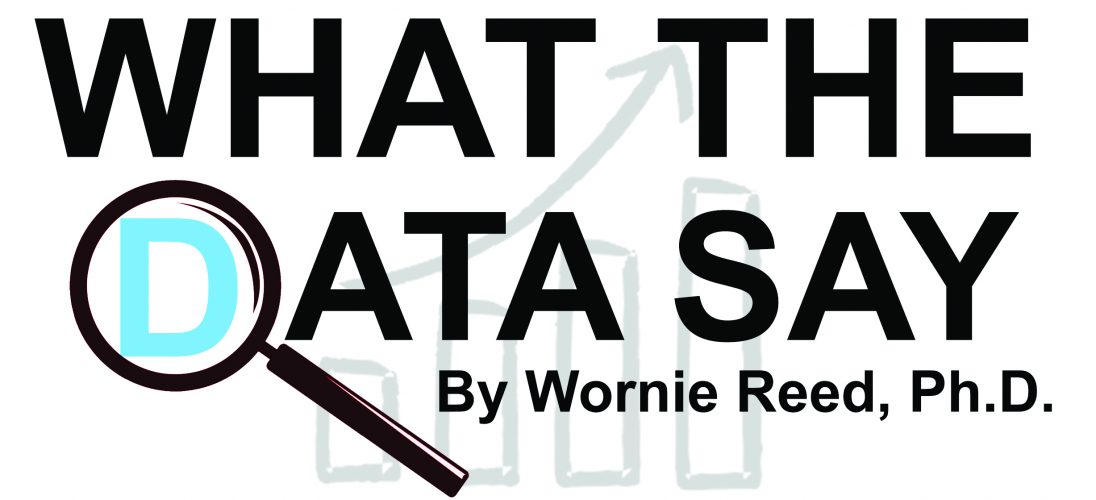Politics
Limiting the Vote

 As you may know, the barely literate white registrars could test the literacy of blacks applying to vote. Here is a joke about voting I used to hear in my youth. Remember, this was partially true in many cases.
As you may know, the barely literate white registrars could test the literacy of blacks applying to vote. Here is a joke about voting I used to hear in my youth. Remember, this was partially true in many cases.
A black man in some small town in Georgia goes to register to vote, and the registrar asks, “What does this part of the U.S. Constitution say in Chinese?”
The black man reads it fluently.
Then the registrar asks, “What does this part of the Constitution say in Russian?”
The black man reads it fluently.
The registrar continues her exam, “What do these little [aging] dots on this copy of the U.S. Constitution say?”
The black man replies, “Well, Ma’am, it says you white folks ain’t gonna let me register today.”
This was almost true, as in the 1950s and early 1960s, professors at Tuskegee Institute, now University, could not vote.
If the right to vote in America is sacred, it is so sacred that for the entire history of the United States, this right has been limited as to who could exercise that right.
At first, only white men with property could vote. Then grudgingly, a few other groups were permitted to vote—first poor whites, then former slaves, then women.
But before women could vote, southern states moved to prohibit blacks from voting. This occurred after the period of Southern Redemption, roughly between 1877, the end of Reconstruction and 1900, the beginning of the new century. The South, with plenty of help from the North, regained its footing and its ability to manage its affairs, which meant managing their former slaves.
Between 1890 and 1908, seven southern states–Mississippi (1890), South Carolina (1895), Louisiana (1898), North Carolina (1902), Alabama (1901), Virginia (1902), and Georgia (1908)–adopted constitutional amendments that virtually excluded blacks from having the right to vote and significantly reduced poor white participation, primarily through literacy/understanding tests and grandfather clauses.
After years of struggle and lost lives, the Voting Rights Act of 1965 restored the right to vote for African Americans. But as the old folks used to say where I grew up, “The devil is always busy in his workshop.”
The 2013 U.S. Supreme Court decision, Shelby v Holder, gutted the Voting Rights Act. With permission granted by this decision, States began to make it harder for African Americans and other minorities to vote—closing thousands of polling places in African American communities, purging voter rolls, and enacting strict voter ID laws.
But one of the means of limiting the black vote, felony disenfranchisement, strengthened in Virginia’s Constitutional Convention in 1902, persists today. This law affects African Americans disproportionately because of the criminal justice system’s racist workings throughout American history.
The criminal justice system has always prosecuted and convicted blacks excessively compared to their proportion of committing specific crimes. In the 19th century, blacks were convicted routinely of minor stealing, something they treated as a felony.
The white supremacists who pushed for laws to take away African Americans’ right to vote were openly intentional about it. At the Virginia Constitutional Convention of 1902, Delegate Carter Glass made the following statement:
“This plan [which included felony disenfranchisement laws] will eliminate the darkey as a political factor in this State in less than five years, so that in no single county…will there be the least concern felt for the complete supremacy of the white race in the affairs of government.”
Although Governor MacAuliffe tried to restore rights to all ex-felons–citizens who have paid their debt to society–the Courts blocked him and mandated that it be done individually. That is not working so well, because the Governor cannot restore rights this way to as many people as are leaving prison each year.
This antiquated racist law is still limiting the vote, especially of African Americans.
The bottom line is that Trump is just making a terrible situation much worse.
Nevertheless, we must vote as if our life depended on it because it does.














